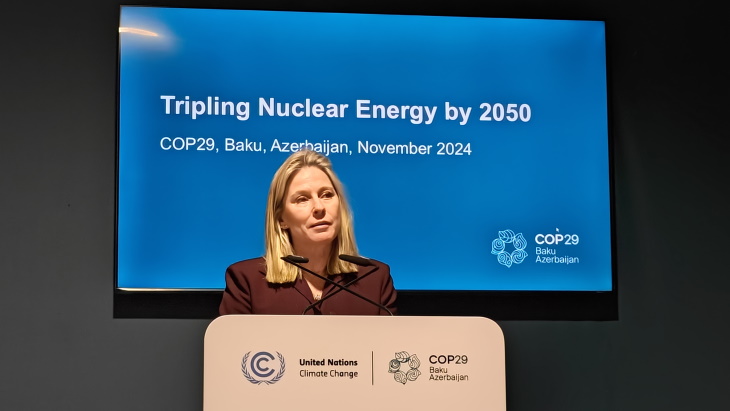Trump starts USA's withdrawal from Paris Agreement
.jpg)
President Donald Trump announced in June 2017 that the USA would withdraw from the 2015 agreement, according to which almost every country in the world committed to voluntary contributions to reducing greenhouse gas emissions.
"As noted in his June 1, 2017 remarks, President Trump made the decision to withdraw from the Paris Agreement because of the unfair economic burden imposed on American workers, businesses and taxpayers by US pledges made under the Agreement," Pompeo said. "The United States has reduced all types of emissions, even as we grow our economy and ensure our citizens' access to affordable energy. Our results speak for themselves: US emissions of criteria air pollutants that impact human health and the environment declined by 74% between 1970 and 2018. US net greenhouse gas emissions dropped 13% from 2005-2017, even as our economy grew over 19%."
The USA's approach, Pompeo said, incorporates the "reality of the global energy mix" and uses all energy sources and technologies cleanly and efficiently, including fossils fuels, nuclear energy, and renewable energy.
"In international climate discussions, we will continue to offer a realistic and pragmatic model - backed by a record of real world results - showing innovation and open markets lead to greater prosperity, fewer emissions, and more secure sources of energy," he said.
The USA began its withdrawal on the third anniversary of the entry into force of the agreement, which aims to keep global temperature increases this century well below 2 degrees Celsius, and drive efforts to limit temperature increases to below 1.5 degrees Celsius. Adopted at the 21st conference of the parties (COP21) to the United Nations Framework Convention on Climate Change (UNFCCC), the agreement has to date been ratified by 187 of its 197 parties.
Miguel Arias Cañete, the European Union commissioner for energy and climate action, responded to the US withdrawal from the agreement on Twitter, saying: "The Paris Agreement has strong foundations and is here to stay. The EU, with our partners, stand ready to strengthen cooperation with all parties to implement it. We will continue working with stakeholders and entities in the USA who remain committed to ambitious climate action."
French President Emmanuel Macron and Chinese President Xi Jinping are to hold a formal meeting in Beijing tomorrow where they are expected to sign an agreement including a paragraph on the "irreversibility" of the Paris Agreement, France 24 has reported citing an official from the French presidential office.
Writing in the Washington Post, former US Secretary of State John Kerry and Defense Secretary Chuck Hagel, said the President's action had left the USA isolated and, by putting up "roadblocks" to the transition to a low-carbon global economy, would make US business less competitive.
"The Paris Agreement was a start, not a finish line. But it was the best ignition switch the world could agree on to spark international cooperation on this critical issue," they said. "[T]he United States can't solve this problem alone."
Former US Vice President Al Gore described Trump's decision as "reckless" but noted that the withdrawal cannot be completed until the day after next year's presidential election.
"This decision is ultimately in the hands of the voters," he said. "In the two years since Trump first announced his intention to withdraw, we have seen unprecedented commitments from civic leaders, mayors, governors, investors, and the business community to ensure that the United States remains a global leader in confronting the climate crisis," he said. "No one person or party can stop our momentum to solve the climate crisis, but those who try will be remembered for their complacency, complicity and mendacity in attempting to sacrifice the planet for their greed."

_99697.jpg)

_53540.jpg)





_66488.jpg)


